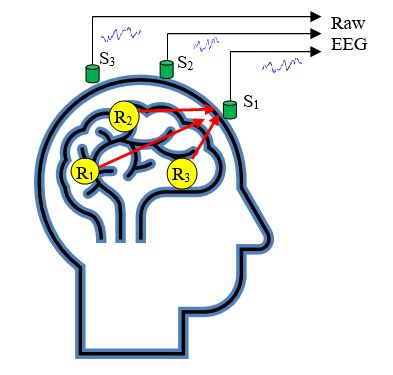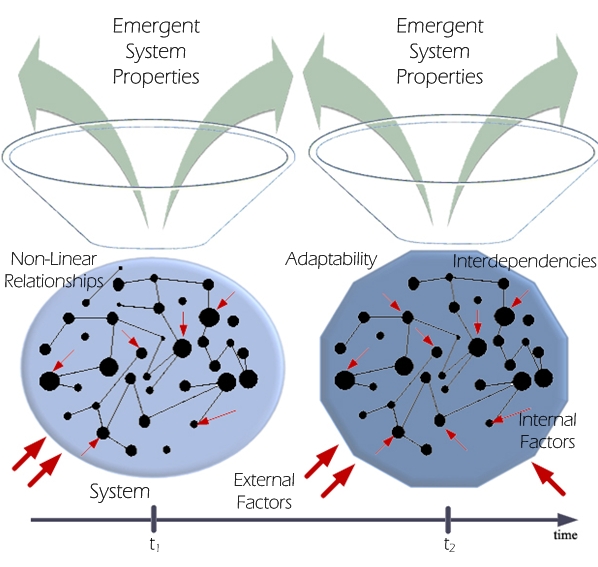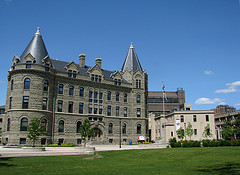Research
Systems and Complexity Sciences Applied to Health Systems
The Complex Systems Group research systems and complexity sciences. Our research is currently divided in two main areas of work: brain systems as a system of complex adaptive systems, and systems and complexity sciences methods.Previously in this field, we have done research applying systems and complexity sciences on chronic diseases models, health systems models and distributed computing.
Brain Systems as a System of Complex Adaptive Systems
 |
The Human Nervous System (central and peripheral) has many complex adaptive systems, where complexity sciences principles are present. Interestingly nature has developed mechanisms by natural selection to instantiate the principles. This research studies brain systems to get insights from its complex adaptive systems mechanisms.
Brain systems can be studied at different spatial and temporal scales. For the spatial scale, our research is focused on the circuit – regional level scale.
For the temporal scale, we focus at the second to minute level scale. We use datasets obtained from EEG (Electroencephalograms) signals of brain computer
interface devices. The datasets are analyzed with several computer science techniques to achieve models that express the brain mechanisms and help us to get insights of their systems.
Systems and Complexity Sciences Methods
 |
Currently there are chaos of language vaguely defined and terms not quite existing in Complexity Sciences (e.g. adaptation, self-organization, emergence, attractors, entropy, bifurcation, nonlinearity among many) . We believe that there is a mathematical language and fundamental theory waiting to be discovered that unifies dynamics, information processing and evolution in complex systems. Our long term goal for this research is to bring together all cross-disciplinary insights obtained from health systems and other related applied research to help us develop a general theory for Systems and Complexity Sciences.

